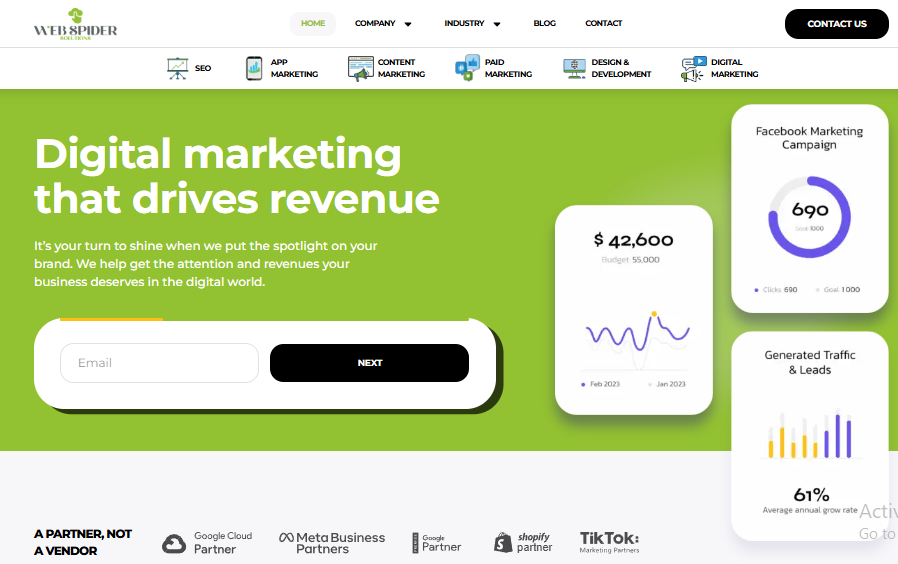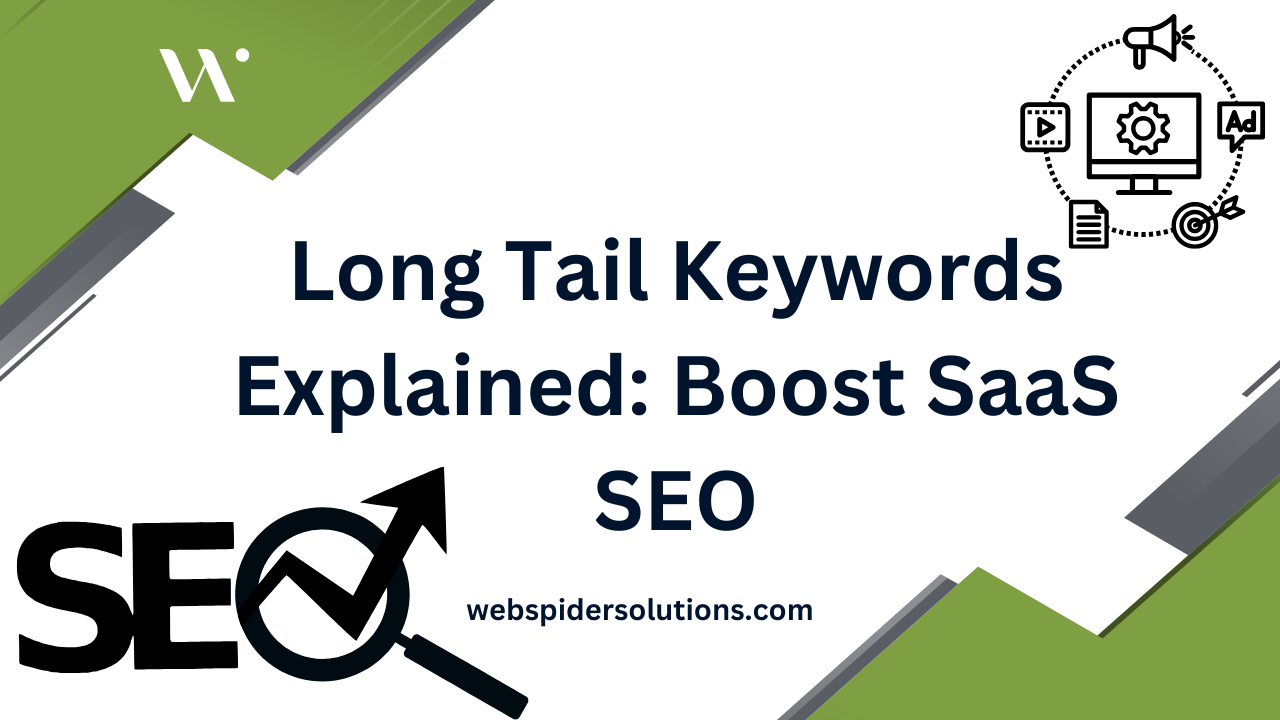SEO keeps changing, but it is still the backbone for online success and discovery. Businesses are investing in smarter strategies and the competition is real. Yet here is the shocker. Over 68 percent of all online experiences begin with a search engine, yet most websites miss out on this massive source of traffic simply by ignoring basic SEO principles. The real winners in 2025 are going to be the ones who treat SEO as an ongoing strategy, not just a checklist—and that changes everything.
Table of Contents
- What Is SEO And Why It Matters
- Key Components Of Effective SEO
- How SEO Drives Business Growth Today
- Best SEO Practices For Competitive Industries
Quick Summary
| Takeaway | Explanation |
|---|---|
| SEO improves online visibility significantly | Implementing effective SEO strategies elevates a website’s ranking in search results, attracting more targeted visitors. |
| Technical SEO is foundational | A strong technical SEO strategy ensures that search engines can easily crawl and index a website, enhancing its performance. |
| High-quality content drives engagement | Creating valuable content that answers user queries is crucial for attracting and retaining website visitors. |
| Utilize competitor analysis for differentiation | Regularly analyzing competitors can help identify gaps and opportunities, aiding in developing unique strategies that stand out. |
| Focus on user experience for better rankings | Prioritizing user experience, including site speed and navigation, is essential for satisfying both users and search engines. |

What Is SEO and Why It Matters
Search engine optimization represents a strategic approach to increasing online visibility and attracting targeted website visitors through organic search results. At its core, SEO is about understanding how search engines rank content and strategically optimizing websites to appear prominently for relevant user queries.
The Fundamental Definition of SEO
Search engine optimization is a comprehensive digital marketing strategy focused on improving a website’s performance in search engine results pages (SERPs). Discover the mechanics of search optimization to understand how websites can attract more organic traffic. According to research from Louisiana State University, SEO goes beyond simple marketing tactics. It involves a deliberate process of making web content more discoverable, accessible, and valuable to potential users searching for specific information or solutions.
The primary objectives of SEO include:
- Visibility Enhancement: Improving website rankings in search results
- Traffic Generation: Attracting high-quality visitors interested in your content
- User Experience: Creating content that directly answers user queries
Why SEO Matters for Modern Businesses
In the digital marketplace, visibility determines success. Research from Ohio State University highlights that SEO is crucial for businesses seeking to connect with potential customers actively searching for their products or services. Effective SEO strategies help companies:
- Increase brand awareness without direct advertising costs
- Build credibility through higher search engine rankings
- Understand and respond to customer search behaviors
- Compete effectively in crowded digital marketplaces
Modern consumers rely heavily on search engines to make purchasing decisions. When your website appears on the first page of search results, you significantly increase the likelihood of attracting potential customers. SEO transforms your online presence from a passive website into an active marketing tool that continuously works to bring targeted traffic to your business.
The landscape of search engine optimization continues to evolve, with search algorithms becoming increasingly sophisticated. Successful SEO in 2025 requires a holistic approach that combines technical optimization, high-quality content creation, and a deep understanding of user intent. Businesses that invest in comprehensive SEO strategies position themselves to capture valuable online market share and drive sustainable digital growth.
Key Components of Effective SEO
Effective SEO is a multifaceted approach that requires strategic implementation across several critical domains. To achieve optimal search engine performance, businesses must understand and execute a comprehensive optimization strategy that goes beyond simple keyword insertion.
Technical SEO Foundation
Learn more about essential SEO principles that drive website performance. According to TechTarget, technical SEO involves three primary components: on-page optimization, off-page optimization, and technical infrastructure. This means creating a robust website architecture that search engines can easily crawl and understand.
Key technical elements include:
- Website Speed: Ensuring fast loading times across devices
- Mobile Responsiveness: Creating seamless experiences on smartphones and tablets
- Secure Connection: Implementing HTTPS protocols
- Clean Site Structure: Developing clear navigation and URL hierarchies
Here is a table summarizing the key technical SEO elements and their purposes:
| Technical SEO Element | Purpose |
|---|---|
| Website Speed | Enhances user experience and boosts search rankings |
| Mobile Responsiveness | Delivers seamless browsing across smartphones and tablets |
| Secure Connection (HTTPS) | Protects user data and signals trust to search engines |
| Clean Site Structure | Improves site navigation and ease of search engine crawling |
Content and Keyword Strategy

Research from the Texas A&M University System emphasizes the critical nature of on-page SEO components. Content remains the cornerstone of effective search optimization. This involves developing high-quality, relevant content that directly addresses user queries while strategically incorporating targeted keywords.
Successful content strategies require:
- Comprehensive keyword research
- In-depth, valuable content creation
- Regular content updates
- Strategic keyword placement
- User-focused writing that answers specific questions
User Experience and Authority Signals
Government Communication and Information System guidelines highlight the increasing importance of user experience (UX) and authority signals in modern SEO. Search engines now prioritize websites that demonstrate expertise, authoritativeness, and trustworthiness.
Critical UX and authority considerations include:
- Core web vitals performance
- Engagement metrics
- Quality backlink profiles
- Demonstrable expertise in content
- Clear author credentials
- User interaction signals
Modern SEO is no longer about manipulating search algorithms but creating genuine value for users. Businesses must adopt a holistic approach that combines technical excellence, high-quality content, and an unwavering commitment to user experience. By focusing on these key components, organizations can develop a robust SEO strategy that not only improves search rankings but also delivers meaningful connections with their target audience.
How SEO Drives Business Growth Today
In the digital marketplace, search engine optimization has transformed from a technical strategy to a critical driver of business growth. Organizations that effectively leverage SEO can unlock significant competitive advantages, attract high-quality leads, and create sustainable revenue streams.
Organic Traffic as a Business Catalyst
Discover how professional SEO services can transform your digital presence. Research from the Journal of Electronic Commerce in Organizations demonstrates that implementing strategic SEO practices directly correlates with increased website traffic, longer user engagement, and higher annual sales revenue. Small and medium enterprises particularly benefit from this approach, as organic search provides a cost-effective method of attracting potential customers.
Key benefits of organic traffic include:
- Cost-Efficiency: Lower customer acquisition costs compared to paid advertising
- Sustained Visibility: Continuous exposure without ongoing direct expenses
- Higher Credibility: Users perceive organic results as more trustworthy
- Targeted Reach: Attracting users actively searching for specific solutions
The following table summarizes the core business benefits of organic traffic:
| Benefit | Description |
|---|---|
| Cost-Efficiency | Reduces reliance on paid ads, lowering acquisition costs |
| Sustained Visibility | Maintains presence in search results without constant spending |
| Higher Credibility | Users trust organic results over advertisements |
| Targeted Reach | Draws users already seeking products or solutions you offer |
Conversion Optimization and Revenue Generation
An empirical investigation into Search Engine Advertising revealed that conversion rate significantly outweighs click-through rate in determining business success. SEO strategies go beyond mere visibility by creating targeted content that speaks directly to user intent, thereby increasing the likelihood of transforming website visitors into paying customers.
Effective conversion strategies involve:
- Creating content that addresses specific user queries
- Developing clear, compelling calls-to-action
- Optimizing website user experience
- Building trust through authoritative content
- Implementing strategic keyword targeting
Long-Term Business Sustainability
Research published in the American Journal of Interdisciplinary Studies analyzed multiple case studies demonstrating SEO’s profound impact on digital business growth. The study highlighted that businesses investing in comprehensive SEO strategies experience more than just improved search rankings. They develop a robust digital ecosystem that supports continuous customer acquisition and brand development.
Strategic SEO contributes to long-term business sustainability by:
- Establishing industry thought leadership
- Creating adaptable digital marketing infrastructure
- Building comprehensive customer understanding
- Generating consistent, predictable revenue streams
- Maintaining competitive market positioning
In the evolving digital landscape, SEO represents more than a marketing tactic. It is a strategic approach to business growth that integrates technical optimization, content excellence, and deep user understanding. Companies that view SEO as a holistic business strategy rather than a standalone technical function will be best positioned to thrive in an increasingly competitive digital marketplace.
Best SEO Practices for Competitive Industries
In highly competitive digital markets, implementing advanced SEO strategies becomes crucial for maintaining and expanding online visibility. Industries with saturated markets require nuanced, strategic approaches that go beyond basic optimization techniques.
Advanced Competitive Analysis
Learn about strategic SEO techniques to outperform industry competitors. Search Engine Journal research emphasizes the critical importance of ongoing competitor analysis as a foundational strategy for SEO success. This involves systematically studying competitor content, identifying their strengths and weaknesses, and developing strategies that differentiate your digital presence.
Key competitive analysis strategies include:
- Comprehensive Keyword Gap Analysis: Identifying unexplored keyword opportunities
- Content Benchmarking: Evaluating competitor content depth and quality
- Backlink Profile Examination: Understanding competitor link-building strategies
- Search Intent Mapping: Analyzing how competitors address user queries
Technical Optimization and User Experience
Research from the National Center for Biotechnology Information highlights the critical role of technical optimization in competitive industries. Businesses must develop a sophisticated approach that combines advanced technical infrastructure with exceptional user experience.
Critical technical optimization elements include:
- Implementing advanced schema markup
- Optimizing page load speeds across all devices
- Developing mobile-responsive designs
- Creating intuitive site navigation
- Ensuring comprehensive website accessibility
Content Differentiation and Authority Building
In competitive industries, content becomes the primary differentiator. Successful SEO strategies move beyond generic information to create unique, authoritative content that provides genuine value to users. This approach requires deep subject matter expertise, comprehensive research, and a commitment to addressing complex user needs.
Strategies for content differentiation involve:
- Producing in-depth, original research
- Creating multimedia content experiences
- Developing thought leadership pieces
- Addressing complex user queries comprehensively
- Presenting unique insights and perspectives
Successful SEO in competitive industries requires a holistic approach that combines technical excellence, strategic content creation, and continuous adaptation. Organizations must view SEO as a dynamic process of understanding user needs, analyzing market dynamics, and consistently delivering exceptional digital experiences. Those who invest in sophisticated, data-driven SEO strategies will ultimately distinguish themselves in crowded digital marketplaces, transforming technical optimization into a powerful competitive advantage.
Frequently Asked Questions
What is SEO and why is it important?
SEO, or search engine optimization, is a digital marketing strategy focused on improving a website’s visibility in search engine results. It is important because it helps businesses attract high-quality, targeted visitors who are actively searching for their products or services, thus increasing brand awareness and credibility.
How can SEO drive business growth?
SEO can drive business growth by increasing organic traffic to a website, optimizing conversion rates, and supporting long-term sustainability. By attracting users who are already looking for specific solutions, businesses can convert them into paying customers more effectively.
What are the key components of effective SEO?
The key components of effective SEO include technical SEO, content and keyword strategy, and user experience. These elements work together to ensure that a website is easily crawled by search engines, contains valuable content, and provides a positive user experience that satisfies visitors’ needs.
Why should businesses invest in SEO strategies?
Businesses should invest in SEO strategies to enhance their online visibility, reduce customer acquisition costs compared to paid advertising, and maintain a competitive edge in crowded markets. A well-implemented SEO strategy ensures sustained website exposure and can significantly boost revenue over time.
Transform Your SEO Knowledge Into Real Growth
Are you struggling to turn search rankings into tangible business results? This guide detailed how technical SEO, user experience, and a strategic content approach are keys to dominating competitive markets. Yet, putting these advanced tactics to work is a major challenge for many businesses. If you want lasting visibility and a steady flow of leads, you need more than just theory. Discover how deep expertise in digital and content strategies at Web Spider Solutions delivers real-world results for businesses like yours. See inspiring success stories from brands that turned SEO insight into measurable revenue by visiting our Stories Archives.

Step up your marketing game today. Explore how the full-scale solutions at Web Spider Solutions can help you outpace competitors, optimize every click, and make 2025 your most successful year yet. Reach out now for your own strategy session and watch your online presence transform.











